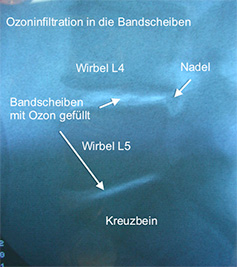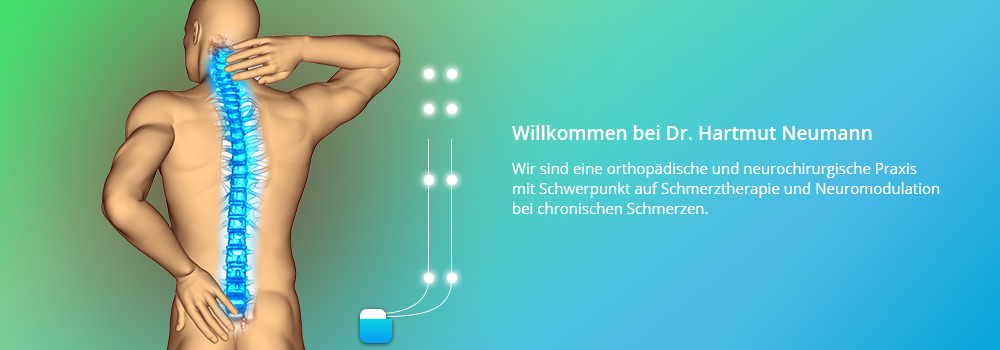Intradiscal Ozone Therapy
Ozone therapy has been known and used for over 50 years. However, it has never had a breakthrough as an officially recognised pain management therapy method; we can assume that this is because no lobbying group has been able to provide the necessary scientific proof in favour of ozone therapy. Here in Germany, this method is hardly used at all, and is often seen as “off-label”.
The therapy could not be easier to carry out. The patient is sedated with analgesics, which makes them doze while lying on their front. Using X-ray fluoroscopy under local anaesthetic, a tube is introduced into the centre of the affected intravertebral disc. The ozone is administered via the tubes. In actual fact, it is a mixture of ozone and pure oxygen. A total of approx. 5ml of this mixture is applied to each of the affected intravertebral discs. Ozone is a very reactive gas that reacts with the tissue immediately before breaking down – for this reason, it cannot be stored for a long time. In the tissue it reacts with water to form hydrogen peroxide (H2O2), which enters the cell walls and triggers a lightning-fast defence reaction. This exaggerated defence reaction from our body usually drives out the inflammatory substances completely from the affected tissue. Flooding the inflammation mediators out leads to a reduction or a complete stop in symptoms. If a patient with a severe slipped disc does not want to be operated on under any circumstances, ozone therapy is an alternative option. This also applies to other types of pain in the spine.
Ozone also makes it possible to heal ulcers on the skin, Crohn’s disease and many other illnesses.
The risks posed by the intervention are minimal, but they may include the following: No guarantee of effectiveness, embolism, risk of infection, nerve damage, formation of haematomas and seromas, painful entry channels, injury to the abdominal artery and the intestine. Unfortunately, German health insurance companies are only willing to pay for the resulting costs in exceptional cases.
Why not let us advise you?

